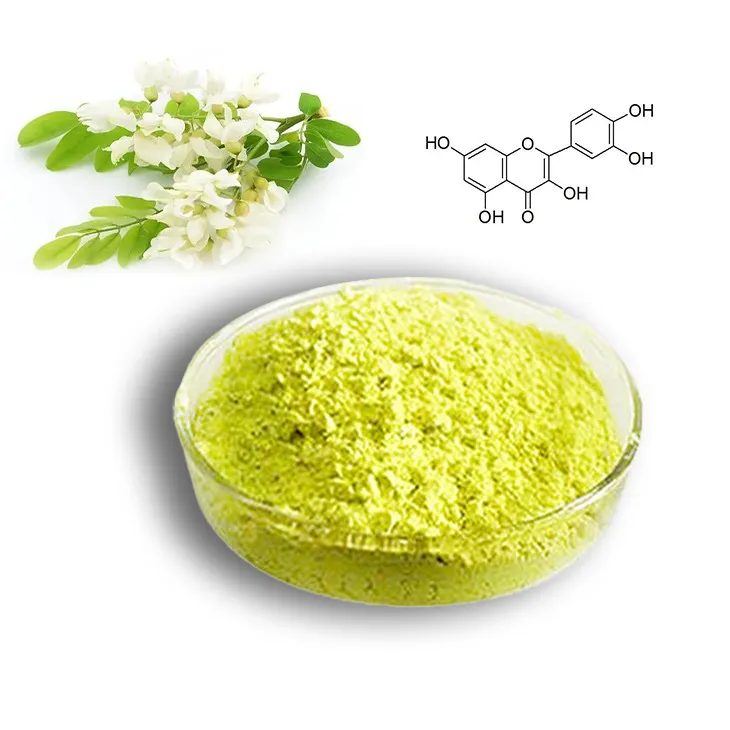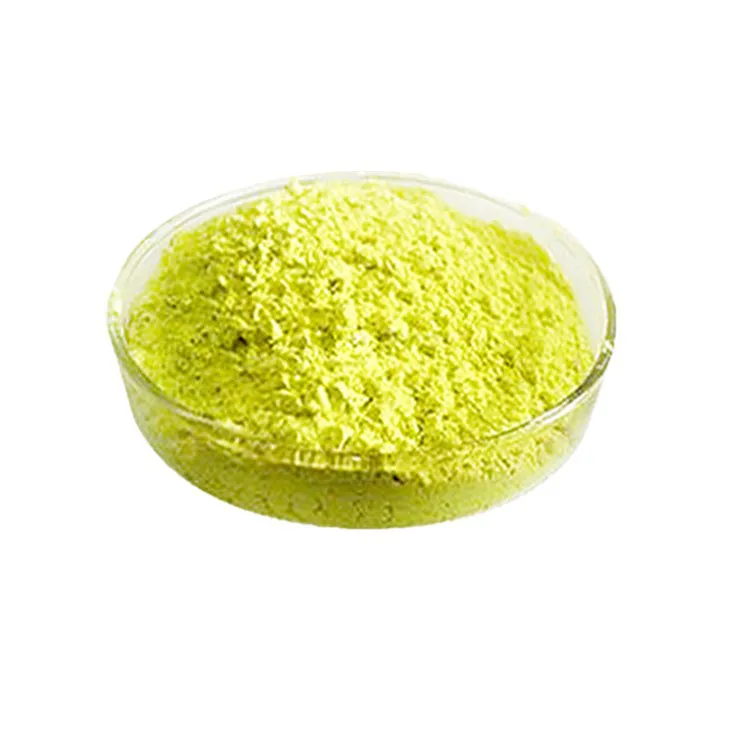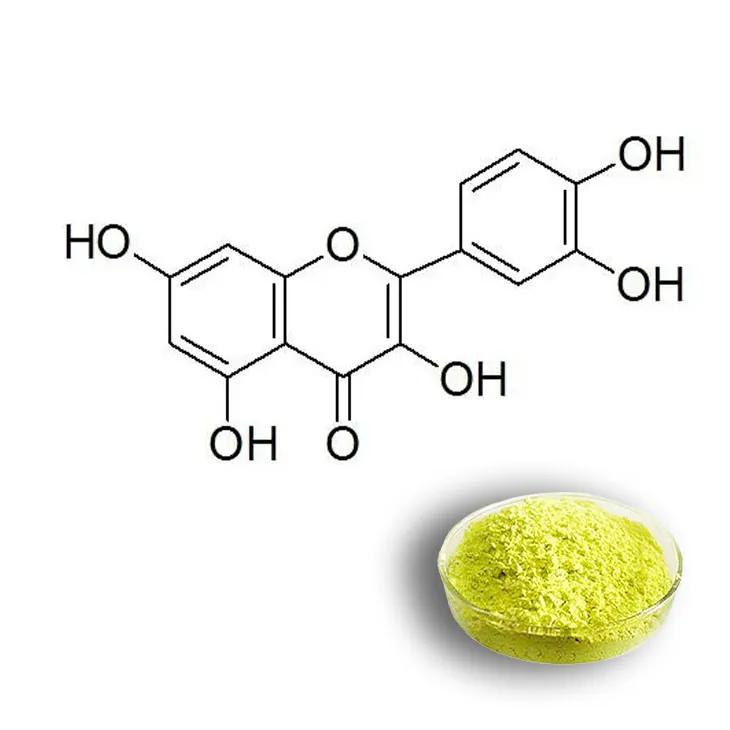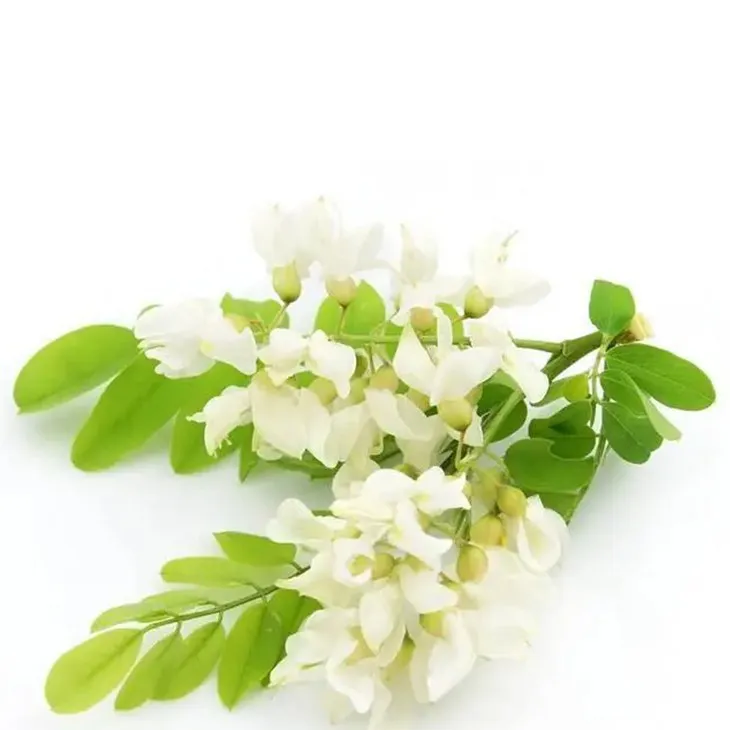- 0086-571-85302990
- sales@greenskybio.com
Quercetin: What Are Its Benefits and How to Take It?
2024-11-13

1. Introduction to Quercetin
Quercetin is a remarkable flavonoid that is widely distributed in nature. It can be found in a variety of plants, playing an important role in their biological functions. Flavonoids, in general, are known for their antioxidant properties, and Quercetin is no exception. It is one of the most studied flavonoids due to its potential health benefits.

2. Health Benefits of Quercetin
2.1 Heart Health
Quercetin has been strongly associated with heart health. One of its key effects is on blood pressure regulation. It may help in reducing blood pressure. This is achieved through multiple mechanisms. For example, it can relax the blood vessels, allowing for better blood flow and less resistance within the circulatory system.
In addition to blood pressure, quercetin also shows potential in improving cholesterol levels. It can influence the levels of LDL (low - density lipoprotein) cholesterol, often referred to as "bad" cholesterol. By reducing the levels of LDL cholesterol or preventing its oxidation, quercetin may contribute to a healthier lipid profile, which is crucial for maintaining a healthy heart.
2.2 Anti - Cancer Potential
Quercetin also shows promise in anti - cancer research. In laboratory studies, it has exhibited various anti - cancer properties. For instance, it can interfere with the growth and proliferation of cancer cells. It may act on specific signaling pathways within cancer cells that are responsible for cell division and survival.
However, it is important to note that while these in - vitro (laboratory - based) results are encouraging, more studies are needed to determine its effectiveness in human cancer treatment. The complex nature of cancer and the differences between laboratory models and real - life human patients require further investigation.
2.3 Anti - Inflammatory Effects
Another significant benefit of quercetin is its anti - inflammatory effects. Inflammation is a natural response of the body to injury or infection, but chronic inflammation can lead to various diseases. Quercetin can modulate the body's inflammatory response by inhibiting certain enzymes and cytokines that are involved in the inflammatory process.
For example, it can reduce the production of inflammatory mediators such as prostaglandins and leukotrienes. This anti - inflammatory property of quercetin may be beneficial in conditions such as arthritis, where chronic inflammation is a major factor contributing to joint pain and damage.
2.4 Antioxidant Activity
As mentioned earlier, quercetin is a flavonoid with strong antioxidant activity. Antioxidants are substances that can neutralize free radicals in the body. Free radicals are highly reactive molecules that can cause damage to cells, proteins, and DNA.
Quercetin can scavenge free radicals, preventing them from causing oxidative stress. This antioxidant effect can have a wide range of benefits, from protecting the skin from premature aging to reducing the risk of chronic diseases such as heart disease, cancer, and neurodegenerative diseases.

3. Food Sources of Quercetin
One of the best ways to obtain quercetin is through the diet. There are several foods that are rich in this flavonoid. Berries are an excellent source of quercetin. For example, blueberries, raspberries, and strawberries contain significant amounts of quercetin. These berries are not only delicious but also offer a natural way to incorporate quercetin into the diet.
Onions are another common food that contains quercetin. Whether they are red onions, yellow onions, or white onions, they all have some level of quercetin content. Cooking onions may affect the availability of quercetin, but they still remain a good source even after cooking.
Apples are also rich in quercetin, especially in the skin. Eating apples with the skin on can provide a good amount of this flavonoid. Additionally, other fruits such as grapes, especially red grapes, and citrus fruits also contain quercetin.
Leafy greens like kale and spinach also contain quercetin, although in relatively smaller amounts compared to berries and onions. However, they are still a valuable addition to a diet rich in quercetin due to their other nutritional benefits.

4. Quercetin Supplements
4.1 When to Consider Supplements
In some cases, individuals may consider taking quercetin supplements. For example, those who may not be able to consume enough quercetin - rich foods due to dietary restrictions or preferences may look into supplements. Also, people with specific health conditions that could potentially benefit from higher levels of quercetin might be interested in supplementation.
4.2 How to Take Quercetin Supplements
The appropriate way to take quercetin supplements depends on individual health status. It is crucial to consult with a healthcare provider before starting any supplement regimen. A healthcare professional can take into account factors such as a person's age, existing health conditions, and medications they are taking.
In general, quercetin supplements are available in different forms, such as tablets, capsules, and powders. The recommended dosage can vary widely depending on the specific product and the intended use. Some supplements may be taken once a day, while others may require multiple doses throughout the day.
4.3 Potential Side Effects and Precautions
Although quercetin is generally considered safe when obtained from food sources, there may be some potential side effects when taking supplements. Some people may experience mild gastrointestinal discomfort, such as stomach upset, nausea, or diarrhea.
Additionally, quercetin may interact with certain medications. For example, it could potentially interfere with the effectiveness of some antibiotics or blood - thinning medications. Therefore, it is essential to inform your doctor about any supplements you are taking, including quercetin, if you are on any medications.

5. Conclusion
Quercetin is a fascinating flavonoid with a wide range of potential health benefits. Its association with heart health, anti - cancer potential, anti - inflammatory, and antioxidant properties make it an interesting compound for further research and consideration in maintaining good health. While consuming quercetin - rich foods is a natural and generally safe way to obtain this flavonoid, those considering quercetin supplements should do so with caution and under the guidance of a healthcare provider.
FAQ:
1. What is quercetin?
Quercetin is an important flavonoid found in nature.
2. How is quercetin related to heart health?
Quercetin may be related to heart health as it potentially helps in reducing blood pressure and improving cholesterol levels.
3. What role does quercetin play in cancer research?
Quercetin shows promise in anti - cancer research, but more studies are still required.
4. Which foods are rich in quercetin?
Berries are among the foods that are high in quercetin.
5. How should one take quercetin supplements?
The appropriate way to take quercetin supplements depends on an individual's health status and should be determined with medical advice.
Related literature
- Quercetin: A Review on Its Dietary Sources, Bioavailability, and Health Benefits"
- "Quercetin and Cardiovascular Health: A Review of the Evidence"
- "The Potential of Quercetin in Cancer Prevention and Treatment"
- ▶ Hesperidin
- ▶ citrus bioflavonoids
- ▶ plant extract
- ▶ lycopene
- ▶ Diosmin
- ▶ Grape seed extract
- ▶ Sea buckthorn Juice Powder
- ▶ Beetroot powder
- ▶ Hops Extract
- ▶ Artichoke Extract
- ▶ Reishi mushroom extract
- ▶ Astaxanthin
- ▶ Green Tea Extract
- ▶ Curcumin Extract
- ▶ Horse Chestnut Extract
- ▶ Other Problems
- ▶ Boswellia Serrata Extract
- ▶ Resveratrol Extract
- ▶ Marigold Extract
- ▶ Grape Leaf Extract
- ▶ blog3
- ▶ blog4
- ▶ blog5
-
Organic Tongkat Ali extract powder factory.
2024-11-13
-
How to make powder with ashwagandha extract.
2024-11-13
-
Rosehip extract manufacturers from China.
2024-11-13
-
The best cat's claw extract in nature.
2024-11-13
-
Chinese Dandelion Leaf Extract Suppliers.
2024-11-13
-
Ginseng Root Extract
2024-11-13
-
Tongkat Ali Extract
2024-11-13
-
Golden Seal Extract
2024-11-13
-
Panax Ginseng Leaf Extract
2024-11-13
-
Artichoke Leaf Extract
2024-11-13
-
Mangosteen extract powder
2024-11-13
-
Licorice Root Extract Powder
2024-11-13
-
Honeysuckle Pollen
2024-11-13
-
Black Pepper Extract
2024-11-13
-
Oat Straw Extract Powder
2024-11-13





















